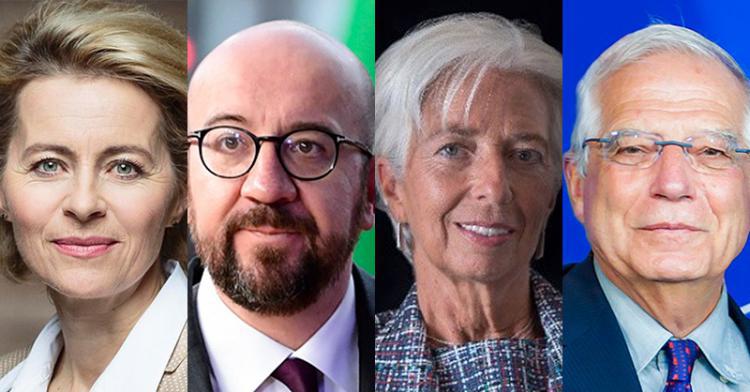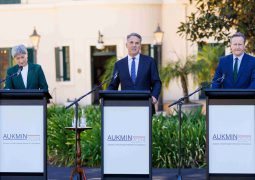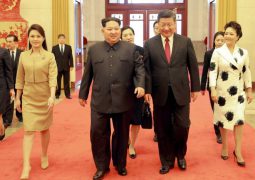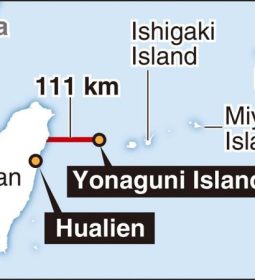“Old Europe” will run EU again for next 5 years: German, French, Belgian and Italian – the same old, same old

Ozan Ceyhun
Next week, particularly July 16 and 17, will be a rather busy time for the EU.
Since the day EU leaders suggested German Defense Minister Ursula von der Leyen as the new president of the EU Commission, the EU has been only occupied with itself and only one subject is being spoken about in Brussels: “Is the European Parliament going to elect von der Leyen or not?”
In reality, this question’s logical answer is very easy: Yes, it is going to elect her. Or to be more precise, what else is it going to do other than elect her?
Then again, the EU leaders are not the only ones responsible for this situation. The European Parliament also has great responsibility in this development of events.
Everything is because of the German “Spitzenkandidat,” which means “number one candidate.”
Germans love this word. One arbitrary “Spitzenkandidat” in every election is natural for Germany. In the European Parliament elections the Germans elected the European People’s Party (EPP) candidate Manfred Weber as “Spitzenkandidat.” This is true.
However, the other 27 countries, despite what was believed, did not elect a “Spitzenkandidat.” As the always do, they voted for the party closest to themselves. Most voters were not even aware of the “Spitzenkandidat” system.
Because of this, they are having a hard time understanding the objection of “but Spitzenkandidat was supposed to be EU Commission president!” Which was voiced over and over again by the European Parliament after the elections.
Then again, we should also remember the convention where the Christian Social Union in Bavaria (CSU) elected its own president on Jan. 19. Manfred Weber too wanted to be president. However, the CSU did not elect him. The CSU appointed Weber, whom it did not choose to elect as its own president, as “Spitzenkandidat” for all of Europe.
In reality in Brussels, nobody was expecting Manfred Weber to be EU Commission president. This reality was voiced in “trusted conversations.”
It was also a well-known fact that in the parliament newly formed after the European Parliament elections, there wasn’t a majority for Weber. In the European Parliament where there were many talks about the “Spitzenkandidat” system, neither Weber nor his opponent, the social democrat Frans Timmermans, had the chance of gaining support of the majority.
Despite this EU leaders at least looked for a chance in agreement over Timmermans. However the eastern European countries strongly opposed this.
Now under these circumstances, EU leaders, in a vote where Germany remained non-voting, unanimously elected a German to be EU Commission president, a Belgian to be council president and a French to be EU central bank manager. In the meantime, the European Parliament elected an Italian as a president while it is preparing to elect a Bulgarian social democrat as European Parliament president due to the social democrats changing their candidate. With these choices, it is as if the EU returned back to its formative years.
The eastern European countries remained outside. Some circles claim that this is a plan by the eastern European countries as they are planning to blame the EU’s old ones after five years due to the “EU’s failure” starting with Germany. Not only eastern Europe but the entire northern Europe too remained without a position. This situation will not make things easy within the EU.
As it is understood there are many stories being told in Brussels. Those who are betting on “von der Leyen’s election” should not surprise anyone.
In truth the fact that the first time two women are to be seated in the EU’s most prominent positions has earned EU public opinion sympathy. Especially for a mother of seven to be EU Commission president is a first.
Now EU Commission presidential candidate von der Leyen is being the guest of groups in the European Parliament and explaining her plans in order to win their support. Of course, these assembly groups are trying in every way to “get some compromise” from her. In the end, they will elect von der Leyen. Level-headed Europeans do not have the luxury of “dragging the EU into a chaos” by not electing von der Leyen.
It is also another fact that von der Leyen is a much more experienced politician than Manfred Weber. Of course, being “experienced” cannot be the only criteria. If that was the case French voters who did not wish to elect “Weber because he was inexperienced” should not have elected Macron. Right?
In the end, the point we have come to is clear. The “package” which EU leaders have elected unanimously will be approved by European Parliament members, which were elected from the national lists that the same EU leaders designated as party presidents and “hopefully” this theater will come to an end. The EU cannot waste any more time on this matter. The EU does not have the luxury of leaving the field to Donald Trump, Vladimir Putin and Xi Jinping.
We hope that the new period that will begin after the new EU President Ursula von der Leyen is elected on July 17 will be fortunate for all of us.
- Previous New road linking Europe to China is given a green light
- Next 1MDB court proceedings in Malaysia: What has SRC International to show after taking RM4 billion?’
















